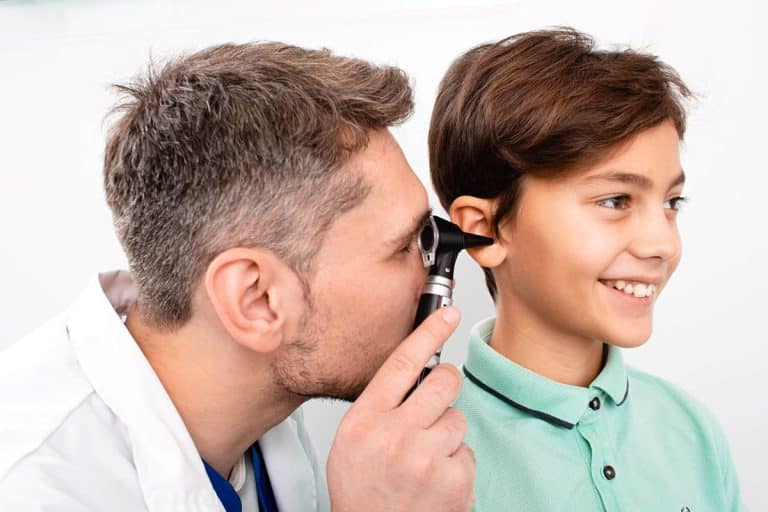Your Child Can Connect to a World of Sounds with Hearing Loss Treatment
As a parent, you always want the best for your child. If you think they might be experiencing pediatric hearing loss, you may be worried about them missing out on experiences. At Collin County ENT, we can provide your child with treatment to ensure they’re able to fully connect with the world around them.
What Causes Pediatric Hearing Loss?

Hearing loss can occur in children for a variety of reasons. Some may have the condition because of premature birth, genetic concerns or prenatal issues. Additionally, ear infections are a common childhood ailment that can lead to permanent damage in severe instances. Other causes of pediatric hearing loss include physical trauma, exposure to loud noises and certain medications.
How Common Is Pediatric Hearing Loss?
According to the CDC’s National Health Interview Survey, 5 per 1,000 children ages 3-17 screened between 1997 and 2005 had hearing loss. Additionally, the 2019 Hearing Screening and Follow-up Survey found that 1.7 per 1,000 babies screened had hearing loss.
Does My Child Have Hearing Loss?
Symptoms of pediatric hearing loss include:
- A delay in speech and language
- Failure to respond to loud noises or your voice
- Poor academic performance
- Frequent ear infections
- Disorders associated with hearing loss, such as Down syndrome or autism
- Family history of hearing loss
How Is Pediatric Hearing Loss Treated?
There are many options for treating hearing loss in children. Our provider will work with your family to determine which one will work best for your child. Depending on your child’s age, the severity of hearing loss and other factors, possibilities include:
- Hearing aids: These devices include a microphone that amplifies sound, a processor that analyzes sound and a speaker that delivers the sound to the ears.
- Cochlear implants: These devices stimulate the auditory nerve by using electrodes placed in the cochlea of the inner ear.
What Are the Next Steps?
It can be stressful to realize that your child has a hearing impairment, but it’s important to realize that your family isn’t in this alone. At Collin County ENT, we’ll ensure that you and your child understand the condition and how the treatment for it works. Support is just a phone call away.